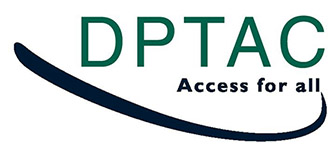DPTAC Main Committee meeting minutes 14 September 2020
Updated 3 December 2025
11am to 3pm, 14 September 2020, online.
Attendees
DPTAC: Keith Richards (Chair), Will Bee, Chris Price, Tanvi Vyas, Roger Mackett, Dave Partington, Matthew Smith, Jessica Uguccioni, Sue Sharp, Mike Brace, Sharon Brennan, Niki Glazier, Bryan Matthews, David Mapp, Helen Dolphin.
Guests: Cabinet Office, Confederation of Passenger Transport (CPT), Society of Motor Manufacturers and Traders (SMMT).
Introductory discussion
DPTAC Chair welcomed all to the meeting. Apologies noted from David Chrimes.
Chair requested disclosure of any conflicts of interest: none identified.
Rail franchises
DPTAC explained that as a result of significantly reduced rail passenger demand the government has introduced Emergency Recovery Measures Agreements (ERMA) for rail operators. As a result, the ONS has reclassified rail operators as public-sector bodies and that this will have broader Equality Act implications.
The Committee noted the guidance note sent from DPTAC to Chris Heaton-Harris on 16 August, advising the government on three priorities for rail accessibility in the next two years. These are: restoring accessibility by returning staffing and station facility opening hours to pre-lockdown levels; ensuring current initiatives to improve accessibility are continued; and ensuring that opportunities to improve accessibility further are taken.
DfT noted that officials and ministers have been clear to rail operators that station staff should be available to provide assistance. DPTAC outlined 2 pieces of research a member has undertaken on the impact that withdrawal of staff has on the rail network’s provision of assistance and services.
DfT noted that the future of rail services is changing, for example changes in ticket purchasing behaviours. Members highlighted DPTAC’s objective for accessibility to be built into the DNA of the rail industry, including for example with smart ticketing and the availability of information.
Action: Secretariat to set up engagement with DfT Rail Reform Team and DPTAC
DfT accessibility update
DfT presented on recent progress including on: funding for Changing Places toilets; an accessibility innovation competition; report on the second year of the Inclusive Transport Strategy and applicants for the Inclusive Transport Leaders Scheme.
DPTAC provided feedback on Spending Review proposals.
Action: DfT to explore how to promote the Mobility Centres whilst maintaining sustainable customer demand, to report back to DPTAC.
DPTAC strategy and prioritisation
Members acknowledged that ERMA’s provide an opportunity to improve accessibility in rail, and that DPTAC’s advice needs to be targeted for this.
DfT noted the importance of DPTAC’s advice being considered by the appropriate decision makers, especially as the rail sector is covered by three Director General groups in DfT.
Action: Secretariat to circulate DfT’s organisational chart to DPTAC
Coach design and accessibility
Representatives from the Confederation of Passenger Transport (CPT) and Society of Moto Manufacturers & Traders (SMMT) presented on the background of Public Service Vehicle Accessibility Regulations (PSVAR) in relation to coaches.
SMMT noted that issues for coaches are different from buses such as the height of the vehicle; the purpose of coaches to drive anywhere rather than dedicated routes; the need for a coach to pass a critical roll-over test (a coach has to be compact enough to survive rolling down a ditch); and the expense and technical difficulties of retrofitting.
National Strategy for Disabled People
Cabinet Office presented on the creation of the Cabinet Office Disability Unit to publish a National Strategy for Disabled People. DPTAC were invited to advise the Strategy in two ways: advising DfT’s policy development; and to be members of the cross-cutting groups created by the Disability Unit.
The Chair highlighted the benefits of a statutory advisory body like DPTAC, and how making use of its expertise would benefit other government departments.
Action: DPTAC members to be invited to join the Built Environment cross-cutting group and to feed into other groups as they are set up.
Any other business
The next meeting will be 9 December.

